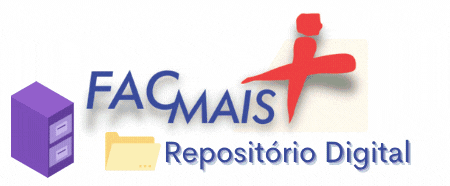Use este identificador para citar ou linkar para este item:
http://65.108.49.104:80/xmlui/handle/123456789/537Registro completo de metadados
| Campo DC | Valor | Idioma |
|---|---|---|
| dc.creator | BRAGA, Denia da Guia Jesus | - |
| dc.date.accessioned | 2022-10-11T23:19:27Z | - |
| dc.date.available | 2022-08-09 | - |
| dc.date.available | 2022-10-11T23:19:27Z | - |
| dc.date.issued | 2022-08-09 | - |
| dc.identifier.uri | http://65.108.49.104:80/xmlui/handle/123456789/537 | - |
| dc.description.abstract | The theme of this research is the learning difficulty in Mathematics related to social vulnerability factors. The objective is to understand the approximations between social 9vulnerability and math learning difficulty as seen by High School teachers. The mobilizing questioning of this investigation comes from the idea that the subject of Mathematics, in High School, presents itself as a challenge to a considerable portion of students, and, based on that one questions himself: how do the teachers perceive the relation between social vulnerability and Mathematics learning difficulty? This is a describing research of quali-quantitative imprint which was developed through a bibliographical study in virtual libraries, books, journals; a collection of articles found in indexed journals on the SBEM (Brazilian Society of Mathematics Education); the application of a questionnaire to 36 teachers of the state network of the Regional Coordination of Education in Inhumas, state of Goiás. Among the main theorists who gave support to this research we have D’Ambrósio (2019), Skovsmose (2017), for the foundation related to the mathematical education; Bourdieu (2007), for the understanding of the issue of social vulnerability and Aguilera (2004) and Garcia (1998), for the learning difficulty research. The result pointed to the dawn of the idea of critical mathematics education as a democracy issue and that it is impossible to analyze school inequalities simply as fruits of natural differences among individuals, there should be the consideration of cultural, social and economical factors which interfere in the students’ learning. | pt_BR |
| dc.language | por | pt_BR |
| dc.publisher | Faculdade Facmais | pt_BR |
| dc.rights | Acesso Aberto | pt_BR |
| dc.subject | Vulnerabilidade Social | pt_BR |
| dc.subject | Dificuldade de Aprendizagem | pt_BR |
| dc.subject | Matemática | pt_BR |
| dc.title | VULNERABILIDADE SOCIAL E DIFICULDADE DE APRENDIZAGEM MATEMÁTICA: o que revelam os professores do ensino médio | pt_BR |
| dc.type | Dissertação | pt_BR |
| dc.creator.Lattes | http://lattes.cnpq.br | pt_BR |
| dc.contributor.advisor1 | GOMES, Selma Regina | - |
| dc.contributor.advisor1Lattes | http://lattes.cnpq.br | pt_BR |
| dc.description.resumo | A temática desta pesquisa é a dificuldade de aprendizagem em matemática relacionada a fatores de vulnerabilidade social. O objetivo é compreender as aproximações entre vulnerabilidade social e dificuldade de aprendizagem matemática a partir dos professores do Ensino Médio. O questionamento mobilizador desta investigação parte da ideia de que a disciplina de matemática, no Ensino Médio, se apresenta como um desafio para parte considerável dos estudantes; e, em função disso questiona-se: como os professores veem a relação entre vulnerabilidade social e dificuldade de aprendizagem matemática? Trata-se de uma pesquisa descritiva de cunho qualiquantitativo que foi desenvolvida por meio de um estudo bibliográfico em bibliotecas virtuais, livros, periódicos; um levantamento de artigos em periódicos indexados no site da Sociedade Brasileira de Educação Matemática (SBEM); aplicação de questionário com 36 professores da rede estadual da Coordenação Regional de Educação de Inhumas, Estado de Goiás. Dentre os principais teóricos que deram sustentação a esta pesquisa estão D’Ambrósio (2019), Skovsmose (2017), para o fundamento com relação à educação matemática; Bourdieu (2007), para o entendimento da questão da vulnerabilidade social e Aguilera (2004) e García (1998), para o estudo da dificuldade de aprendizagem. O resultado apontou para o despontar da ideia educação matemática crítica como uma questão de democracia e que é impossível analisar as desigualdades escolares, simplesmente, como frutos das diferenças naturais entre os indivíduos, há que se considerar fatores culturais, sociais e econômicos que interferem na aprendizagem do aluno. | pt_BR |
| dc.publisher.country | Brasil | pt_BR |
| dc.publisher.department | Departamento 1 | pt_BR |
| dc.publisher.program | PPG1 | pt_BR |
| dc.publisher.initials | FACMAIS | pt_BR |
| dc.subject.cnpq | CNPQ::CIENCIAS HUMANAS::EDUCACAO | pt_BR |
| Aparece nas coleções: | Dissertações do Mestrado | |
Arquivos associados a este item:
| Arquivo | Descrição | Tamanho | Formato | |
|---|---|---|---|---|
| DENIA.pdf | 3.34 MB | Adobe PDF | Visualizar/Abrir |
Os itens no repositório estão protegidos por copyright, com todos os direitos reservados, salvo quando é indicado o contrário.
